In today’s article, my aim is to convince you how sleep is one of the most crucial aspects to ensuring you truly live up to your hockey potential.
Nearly everything in strength and conditioning can be tied back to the quality and length of your sleep at night.
I want to talk to you about some of the results that came from a monumental review that Dattilo did in 2011 titled:
Sleep and Muscle Recovery: Endocrinological and Molecular Basis for a New and Promising Hypothesis
You can check it out here if you’d like to get into the deep reading, but I’ll sum it up nicely below.
Where to Start…
I have literally written a full book on sleep in the past, so, needless to say, I have a lot to say on this topic.
But I want to say outright that focusing on sleep was one of the things that allowed me to separate myself from the pack back in the early days when I was a trainer on the floor of a Gold’s Gym at the beginning of my career.
Everybody there was so focused on their training that they forgot pretty much entirely about their diet and sleep – and the ones who were smart enough to care about their diet still neglected their sleep length and sleep quality.
Admittedly, I didn’t know why sleep was so effective at improving people’s results back then, but I knew that it did – and that’s all I needed to know at the time.
Sleep = People get results faster, so I look like a better trainer.
I’ll take the equation anyway I can get it!
Especially back then when my idea of having a lot of money in my account was simply being in a state where I wasn’t in massive debt.
Knowing that sleep worked so well to improve people’s rates of muscle gain, fat loss, and overall health enhancement – but not know why yet drove me crazy – so as any good crazy person does, I got obsessive with reading everything I could about it.
That eventually lead to me writing a book about it, but today I want to dial in a little deeper specifically on the hormonal side of the equation and why hockey players need to sleep more if they want any hope of reaching their potential.
Good Luck Growing In The Off-Season
Do you have a lagging muscle group that you want to build?
Do you want to get stronger on the puck, so a part of your off-season is to get a little bigger?
Do you have injury issues and you need to strengthen your body to prevent the future risk of it ever occurring again?
Well, one of your primary plateau busters in this category is simply getting a night of better sleep.
Why?
Because failing to get enough sleep at night is especially terrible for anybody on the pursuit of strength and hypertrophy, and since so much of the off-season is focused around this, it makes for a very unproductive summer if you don’t prioritize it.
The reason I say “especially” here is that poor sleep quality leads to destroying the levels of your two primary anabolic hormones:
1. Testosterone
2. IGF-1
Testosterone directly increases your muscle size by going directly into the nucleus of the cell and telling it to upregulate protein synthesis (adding protein tissue to the body).
Beyond this, testosterone also inhibits the metabolic pathways in the body that blocks the mTOR pathway (which is the primary pathway for stimulating muscle hypertrophy).
So, essentially – testosterone forces growth and minimizes breakdown all by itself.
IGF-1, on the other hand, is another anabolic powerhouse because it works directly with the mTOR pathway to upregulate protein synthesis and increase satellite cell recruitment (which is a major limiting factor for achieving more muscle gains once you have reached an intermediate/advanced level of muscle size and hockey performance).
Put very simply, a lack of sleep all by itself cut off two of your biggest sources for protein synthesis, increases your muscle protein breakdown, and reduces your anabolic potential for growth from the hard work that you’re putting into your off-season programming.
Ouch.
Things don’t get any better though.
Good Luck Not Falling Apart
Not only are you not going to grow…
But without adequate sleep, you will progressively break your own muscle tissue down as well.
Here’s the big problem that a lot of hockey players seem to skip over.
Remember how testosterone does all those fancy anabolic things?
Well, it also inhibits something known as myostatin – and myostatin is a gene inside of us that regulates how much muscle we are “allowed to grow” in order to keep the safety of the organism as a top priority.
I’m sure you have seen the very muscular children on TV who have a defective myostatin gene – or one of those cows that also have a defective myostatin gene and they end up becoming incredibly muscular and lean.
Although this looks cool, it’s not exactly safe for the biology of that organism at all – which is why their life expectancy is incredibly short.
Myostatin helps keep muscle growth in check so that you can gain muscle tissue but do it at a rate that won’t literally kill you.
Traveling back to my point above, testosterone inhibits myostatin so that you can grow muscle tissue at a slightly faster rate. But, more importantly, this inhibition is primarily in place so that you don’t LOSE muscle tissue.
A lack of sleep results in a plummeted testosterone secretion, a plummeted testosterone secretion results in more myostatin activity, and more myostatin activity means that your muscle growth potential is shot.
Not to mention you will also probably lose muscle tissue on top of that.
To make matters worse, a lack of sleep also dramatically increases a stress hormone in your body which is known as cortisol.
Cortisol blocks protein synthesis by directly inhibiting the mTOR pathway and then also activates other pathways which result in protein breakdown.
Talk about a bad deal.
Final Thoughts and Recommendations
How much sleep do hockey players need?
It can vary from person to person, but in almost all cases 7-9 hours of sleep per night is ideal.
If you want a major breakdown on this along with a ton of tips to help you out, this article will steer you in the right direction.
It’s tough to give a one-size-fits-all answer to “How much sleep should I get?”, but, my one-size-fits-all answer has always been:
If you wake up to an alarm, then you’re probably not sleeping long enough.
Obviously, your body wanted to sleep more, but you forced it to get up.
Your goal should be to create a routine where you wake naturally each morning with an alarm clock only reserved for the times where you NEED to get up earlier than normal (for a flight or early practice or something) – but the alarm should be the exception, not the rule.
If you arise naturally each day, you will be amazed at how many areas in your life you will feel and perform better in, and this will manifest itself over time to making you a much better hockey player from the inside-out.
If you liked this article and you want more information on how you can reach your potential in this sport then you have to check out the Hockey Skills Accelerator program we have here at Hockey Training.
It is your one-stop-shop for complete hockey domination, so if you’re ready to become a better hockey player I’ll see you on the inside.

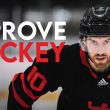


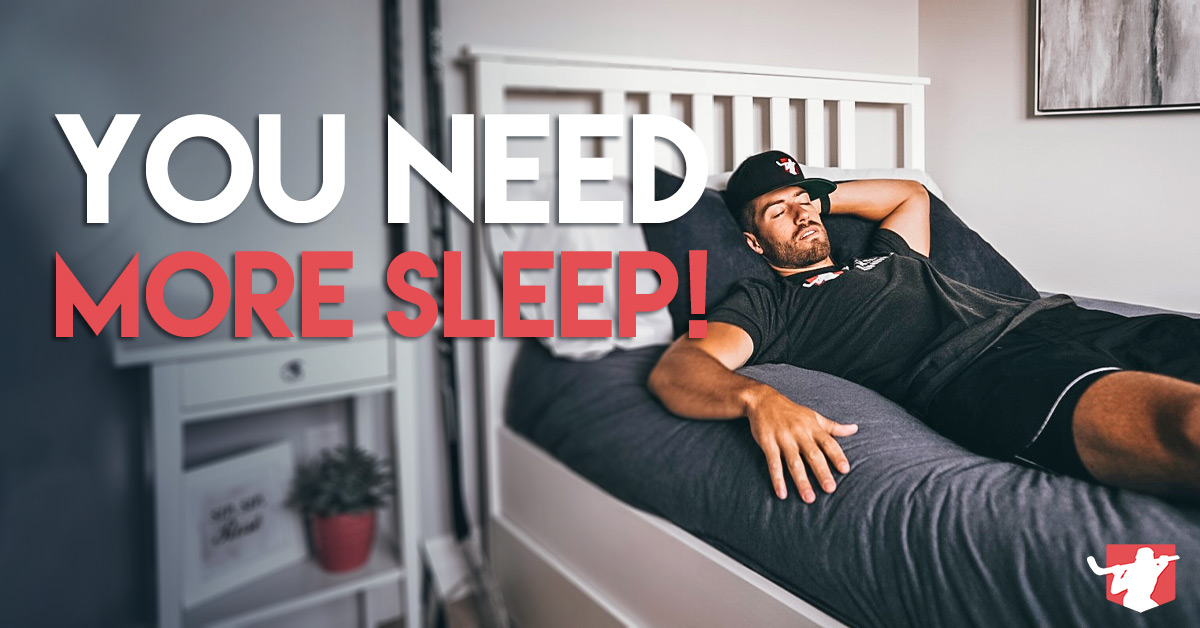
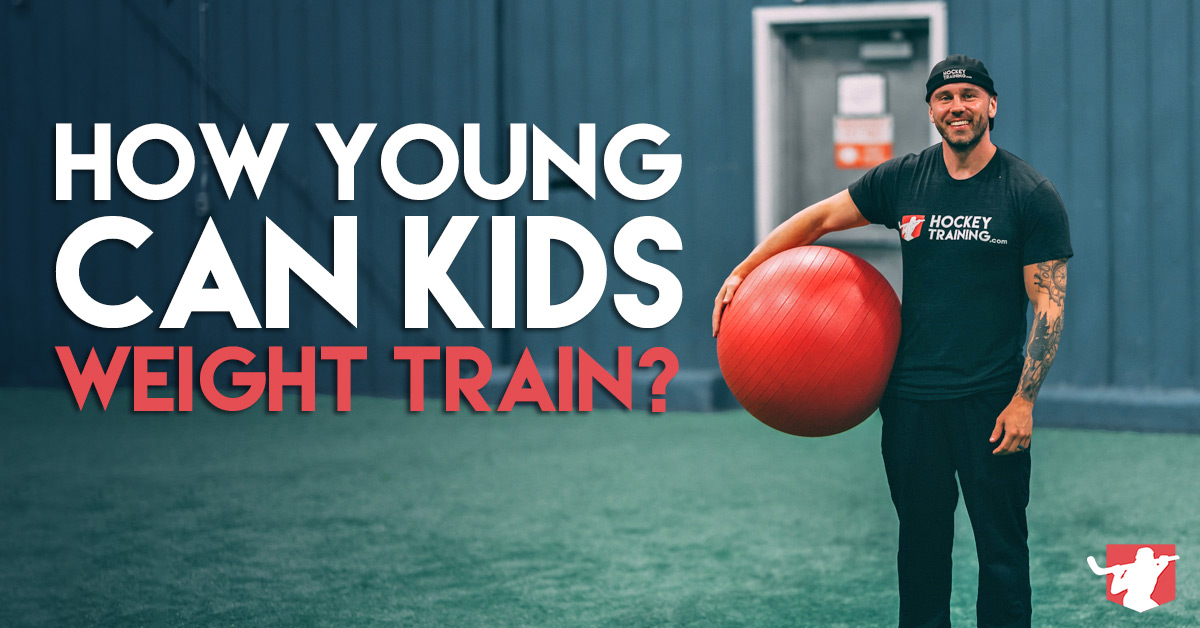

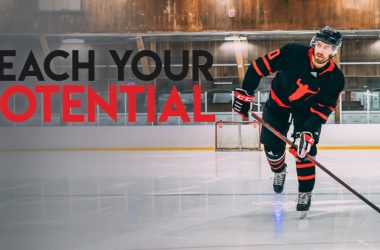
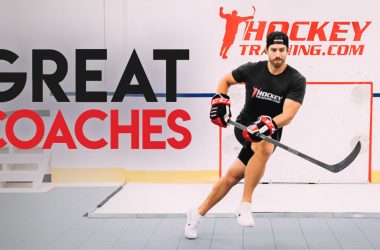
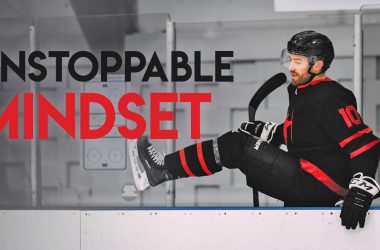
What about naps? Good? Bad?
Timing on game days?
Naps are great — The main rule with naps is that they shouldn’t exceed 20 minutes in length. If you can keep that in check, you’ll be doing your body and mind a lot of good. As far as timing on game days goes, your own trial and error would be the best measure here — but my experience would say that you shouldn’t do it within 3-Hours of game time.
this is why i’m no getting as strong as i should be.
thanks coach!
I am really trying to get better sleep. I have so much trouble falling asleep!